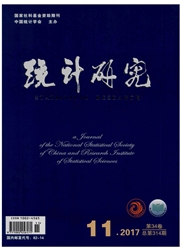

 中文摘要:
中文摘要:
本文提出了一个新的增值税收入分配效应的分解方法,并运用2007—2011年我国城镇分组家庭的消费支出数据,分析了增值税"扩围"对居民收入分配的影响。实证结论表明,增值税"扩围"后不同收入等级的增值税税负随着收入的增加而降低,增值税对食品、居住、家庭设备用品及服务等支出具有不均等效应,而对衣着、医疗保健、交通和通信、教育文化与娱乐服务等支出具有均等效应。我国增值税总体上呈现不均等效应,但不均等效应逐步减弱,其中平均税率和消费支出差异的分配效应是决定因素。
 英文摘要:
英文摘要:
This paper proposes a new decomposition of value added tax( VAT),and analyzes the impact of the VAT's expanding on urban income distribution with consumption expenditure data during 2007 to 2011. The empirical results show that the tax burden in different income group decreases as income increases,and the VAT's expanding has an unequal effect on food, housing, household appliances and services, but has an equal effect on clothing, medical care,transportation and communications,education,culture and entertainment services. The VAT'expanding brings the unfair as a whole,but the unequal effect has been weakening,which is mainly due to the effect of average tax rate and structural differences in consumption expenditure.
 同期刊论文项目
同期刊论文项目
 同项目期刊论文
同项目期刊论文
 期刊信息
期刊信息
